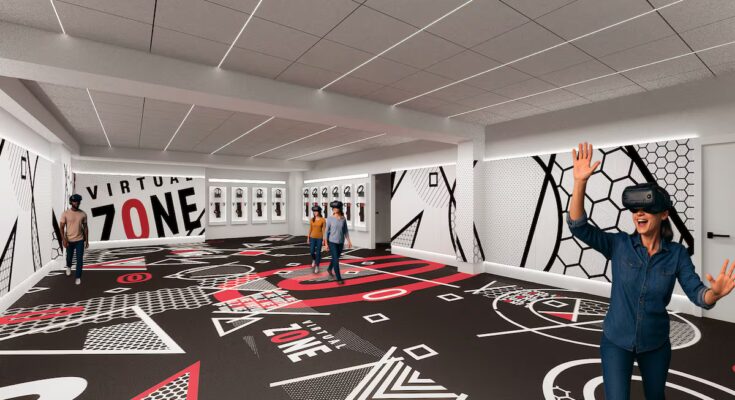Who hasn’t seen a zombie movie and thought, “I’d survive because I’m not as stupid as the ones on the screen.” Well, now that fantasy can be put to the test: virtual reality allows this and other unimaginable experiences. From traveling into space and contemplating the Earth as an astronaut would to returning to 1912 to embark on the Titanic and feeling a bit like Leonardo DiCaprio and Kate Winslet on the bow of the ship: “I’m flying, Jack”. Of course, here in the Atlantic no one freezes.
More than 150,000 people have passed through the rooms of Virtual Zone, a Spanish company specializing in immersive virtual reality, since 2019, when it opened its doors to the public. Today it has five theaters of its own (Alicante, Madrid, Valencia, Murcia and Seville), one in India (Pune) and soon in the United States. Guillermo Sánchez, CEO of the company, comments that it followed the typical model of an emerging company: grow agile, with its own resources and test its value proposition before launching into larger funding rounds.
The goal is to expand and thus bring the turnover to a record: a turnover of 3.5 million euros is expected by the end of this year. “Now, since we are close to the equalize (balance point between income and expenditure) we are evaluating opening up to external investments”, explains Sánchez. The company’s plans are to accelerate its development with a private capital investment vehicle that will lead to raising 2.5 million euros and opening theaters in Europe, with particular attention to France, the United Kingdom and the Nordic countries. In Germany, in the city of Stuttgart, they have launched a franchising model. “We are analyzing which countries best suit our model in economic terms: how much does the staff cost, how much do the customers cost they are willing to pay for these types of experiences,” says the company’s CEO.
The company plans to open six to seven new theaters in Europe. Each of them is expected to have a turnover of around one million euros, explains Sánchez, with an operating profit close to 30% of income. In the United States, Virtual Zone wants to open five theaters together with an entertainment giant that Sánchez did not want to reveal. “It’s a unicorn that operates in several verticals beyond virtual reality. In the model each party invests a portion, with the goal of opening up the market and then growing rapidly with franchising.”
In India, for its part, the approach is similar. “We have a local partner with whom we have an excellent relationship. Here too the investment is shared by both parties and we will definitely add external financing,” he underlines. The Asian country promises to strengthen the company’s expectations. “We are particularly interested. So much so that in three or four years we could reach 40 or 50 centers there.” Opening a center in India costs about a third of what it costs in Europe.
Virtual Zone competes internationally with the big monsters of virtual reality: Sandbox VR (based in California) and the Australian Zero Latency. The Spanish company creates its own animations, weapons to fight zombies and the centers in which it operates, where it uses HTC or Meta glasses. “What’s new are large theatres, places of 600 or 1,000 meters where dozens of people can act at the same time,” underlines the CEO. This format begins to occupy the spaces that were previously cinemas, many of which are in decline. “This is a turning point in the industry,” adds Sánchez, who expects the company to reach the pinnacle of entrepreneurship. “I believe we will become a unicorn one day.”



